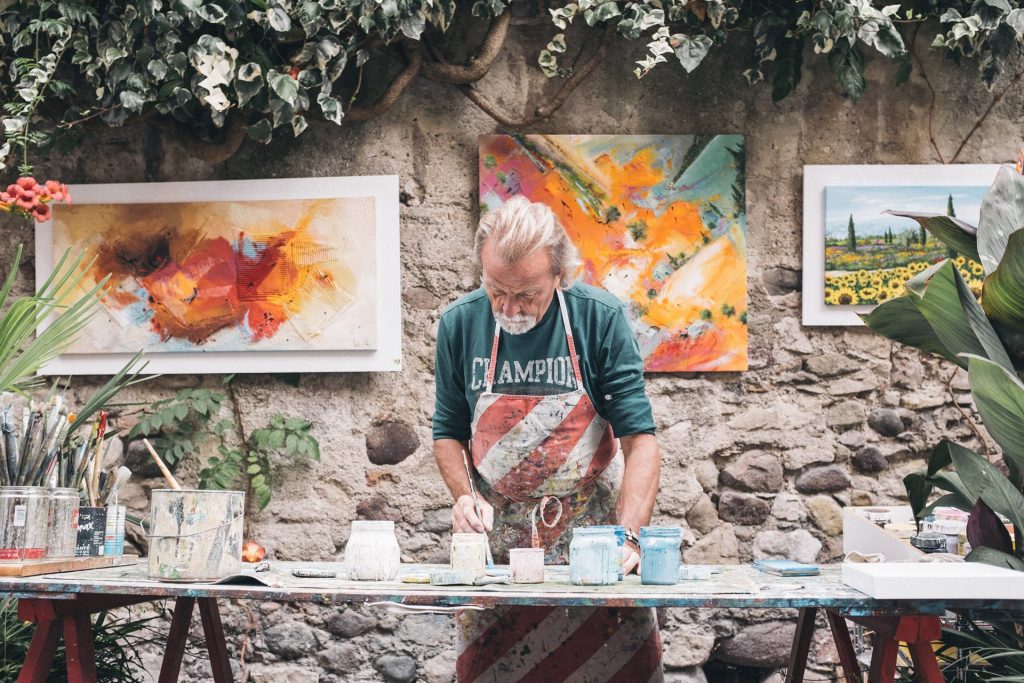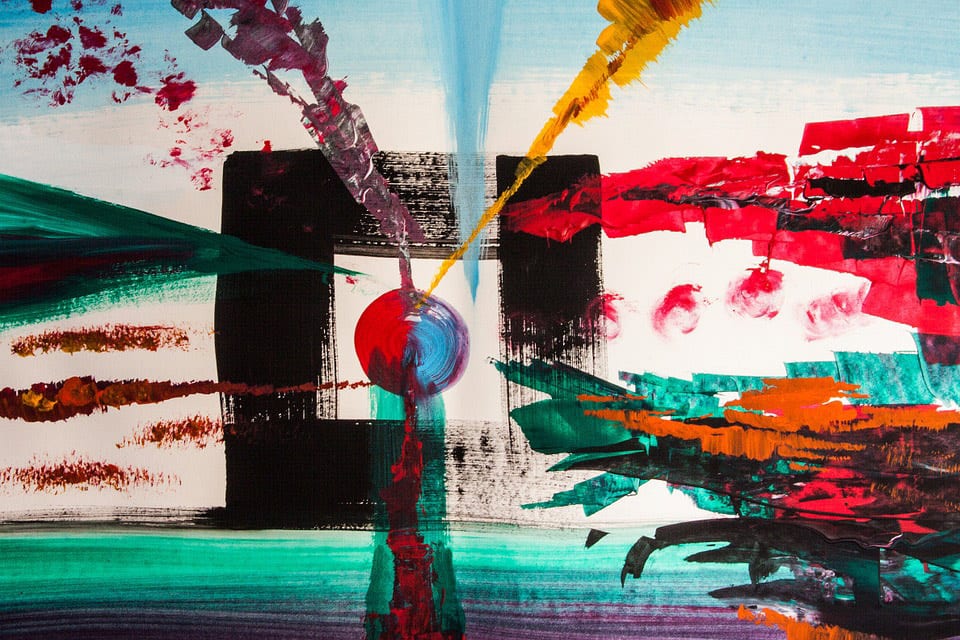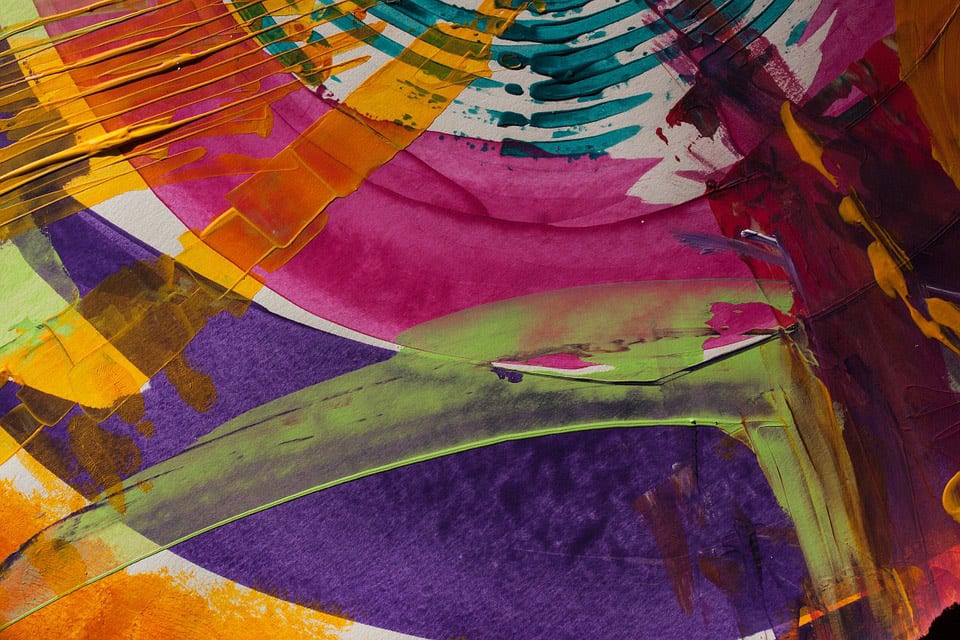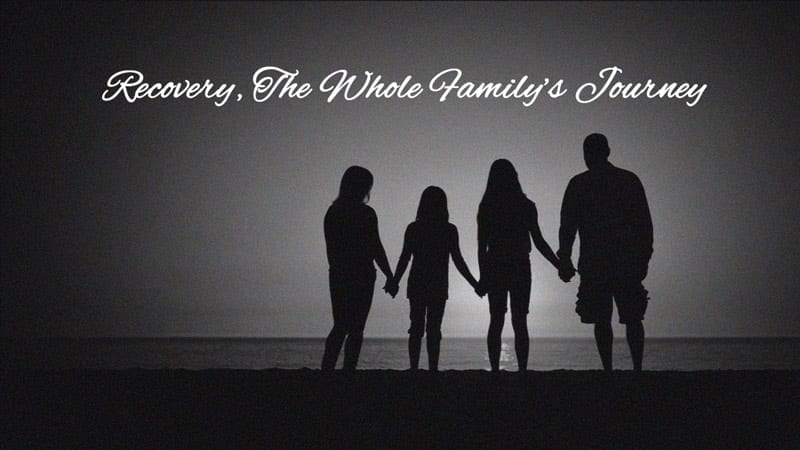Art – no matter whether you choose to create it yourself or simply observe and enjoy it – is a relaxing and inspiring activity for many people. However, the particular benefits of artistic expression go much further than relaxation and enjoyment. Studies suggest that art therapy can be very valuable in treating issues such as depression, anxiety, post-traumatic stress disorder and even some phobias. It is a great way to express your emotions without words, process complex feelings and find relief. In this article, we will take a closer look at art therapy and discuss its mental health benefits.
What Is Art Therapy?
Art therapy can be defined in many ways, but the simplest way to define it is an application of the visual arts in a therapeutic context. You don’t necessarily have to see a therapist in order to experience some of the therapeutic benefits of artistic expression. There are many simple activities you can try from the comfort of your home such as art journaling, sketching, making collages, sculpting with clay, etc. It doesn’t matter what media you choose. The only thing that matters is that you feel comfortable using it.
However, working with a licensed therapist also has its advantages because a professional can tailor each activity to your own needs. If the activities are done in a group, they are excellent for building healthy connections with other people, which may be very helpful if you are fighting depression. The most important thing is that you should try art therapy only if you want it. Expressing yourself through art can be self-revealing and sometimes equally painful as talking. So, if you still don’t feel ready to try it, that is okay.
Who Should Try Art Therapy?
Anyone who feels overwhelmed or pressured by the hectic world we live in should try art therapy. Creating art will give you a chance to slow down and explore any issues you may be having. Art therapy improves the mental health of people who are dealing with addictions, anxiety, attention disorders, grief and loss, dementia, depression, eating disorders, physical illness, PTSD, trauma, relationship issues and much more.
Since the focus is on the process and not the final product, art therapy is not about becoming a great artist but about finding meaning and connection in your life. All you need for it is a willingness to experiment.
Mental Health Benefits of Art Therapy Activities
Art therapy can be used as a complement to traditional mental health treatment. The aim is to manage behaviors, process feelings, reduce stress and anxiety, and increase self-esteem.
- Self-discovery: Creating art can help you acknowledge and recognize feelings that have been lurking in your subconscious.
- Self-esteem: The process will give you a feeling of self-accomplishment which can be very valuable to improve your self-appreciation and confidence.
- Emotional release: The greatest benefit of art therapy is giving you a healthy outlet for expressing and letting go all your feelings and fears. Complex emotions such as sadness or anger sometimes cannot be expressed with words. When you are unable to express yourself, but you desire emotional release, making art may help you to do it.
- Stress relief: Fighting anxiety, depression or emotional trauma can be very stressful for you both mentally and physically. Creating art can be used to relieve stress and relax your mind and body.
It is very important to know that you don’t have to be a talented artist in order to try art therapy. Human beings are innately creative, and all you need to do to complete an art therapy activity successfully is, to be honest with yourself and your emotions. Once you unleash your creativity, your inner artist will quickly wake up.
Studies also show that creating art stimulates the release of dopamine. This chemical is released when we do something pleasurable, and it basically makes us feel happier. Increased levels of this feel-good neurotransmitter can be very helpful if you are battling anxiety or depression.
Mental health professionals and experts agree that art therapy has many benefits, from boosting your self-esteem, and providing you a safe outlet to relieve your emotions, to giving you a sense of control over your life and helping you to get to know and understand yourself better. During the process of art creation, you will be taking yourself on a journey of self-discovery that will help you eliminate emotional roadblocks, and learn how to communicate with yourself and others.

The opinions and views expressed in this guest blog do not necessarily reflect those of www.rtor.org or its sponsor, Laurel House, Inc. The author and www.rtor.org have no affiliations with any products or services mentioned in this article or linked to herein.
Recommended for You
- Learning to Make Music as a Tool for Stress Management - July 25, 2024
- Discovering the Best Therapy for Depression: Effective Treatments and Solutions - July 22, 2024
- How to Overcome Separation Anxiety During a Relationship Break? - July 18, 2024









I appreciate the sentiments of this article, but there are some serious misunderstandings about what Art Therapy actually is. Your statement that you do not need to hire a therapist to participate in Art Therapy is completely incorrect. The definition of Art Therapy, given by the American Art Therapy Association, includes the statement “facilitated by an art therapist”. You cannot do “art therapy” on your own, as the process is something that a trained professional needs to encourage. Your point that journaling and creating art can be relaxing and have other benefits, is true, but please do not conflate coloring pictures to the deep emotional work that can come about through true Art Therapy with a properly trained Art Therapist. Here are some resources for more information:
http://www.arttherapy.org/upload/whatisarttherapy.pdf
Leslie,
Thank you for reading the blog and commenting.
You make a valid point about art therapy as a discipline only being conducted by licensed art therapists. I have edited the sentence in question to comply with that.
Thanks for the feedback. And I will definitely check out those information resources! – Jay
That is interesting that art can help me acknowledge feelings that have been lurking in my subconscious. Maybe sometime soon, I should take an art workshop. Then I could start learning how to express myself better in art.
I love how you explained that anybody can try art therapy as long as they are honest with themselves and their emotions. This will help them have a more personally rewarding experience from art therapy because they’ll be pouring their heart and soul into it. Thank you for helping people see how painting art can be therapeutic as long as they fully engage in it.
This is a very well written and concise summary of a topic I intend to explore further. Thank you!
I disagree with Leslie’s comment “You cannot do “art therapy” on your own, as the process is something that a trained professional needs to encourage.”
After becoming very unwell (PTSD) I found myself becoming more and more creative. I was inspired by nature rather than a therapist and I found the various projects that I worked on as immensely beneficial.
It was not until a year later that I stumbled on an article that talked about the link between mental health and creativity. I was not ‘encouraged’ or in any way influenced by a therapist.
So I don’t believe there are “misunderstandings.” I think it is an individual’s choice whether to pick up their own form of paintbrush or to do so at the suggestion of a therapist.
Great point, Sarah. I’m glad to hear you found relief from PTSD by exploring your creativity, without the aid of therapy. While that doesn’t work for everyone, it sounds like it was good for you, which is the important thing!
Thank you for sharing your experience. It is so important to hear how we all manage our recovery differently as individuals! – Jay
Thanks a lot Jay for this encouraging article. It happens to be exactly what I need NOW! We’re under lockdown & I get so excited dreaming bout doing something creative. Not yet gotten down to doing that. I’m so glad I stumbled across this page Jay! I’ll give it a go!
Hey, I don’t lowkey agree with Leslie. Because as a kid I always dealt with issues like low self-esteem and never really could discover my self. Later, I found comfort in Dance. Dance has always been my way to express and the best way to release my stress. Kathak has shown me a way to confidence and acceptance. Dance is my art therapy and I don’t think it is a necessity to have a therapist to help you find yourself. Thank you for the article Jay. I am a MA Graphic Design student at Leeds Arts University and my practice is mainly oriented towards awareness on art therapy. Cheers!
I love art and for me it is very therapeutic. It calms me down and it is a form of self expression as well. I have learned so much from the article and I enjoyed it deeply.
I always wanted to do Art because it make your mind to relax and take you to the other level of thinking. But i knew that im not good at it so dicided to go for health care but still i always get obsess with any Art paint i see . I admire for alll of those who does Arts thanks for sharing beautiful and amazing job
Yes, I agree to the authors and experts that arts is a therapy. I do experience that when I was having a carpal tunnel, physical therapy yes through arts instead of medical treatment. I do also enhance my skills in paintings and so that becomes my therapeutic exercises everyday. Aside from involving my family in paintings sessions at home, i think no boredom during pandemic took place. We have actually extended the arts we made into exhibits and we find source to make interventions to the community to put up TUGON BOok Hub projects in Modular Distance Learning. Hence, I am happy to discover that Arts really need to be appreciated and teach children the way they can express themselves, too. Thank you.
I too disagree that art “therapy” can only be done with a therapist. However, giving respect to formal therapy, I imagine that it depends on the definition of “art therapy.” After my husband passed away, I picked up a pencil one day and began to draw. I never knew I could draw! Not only did it provide relief from my grief, but continues to be my passion today. I actually provide art classes due to that whole experience. I truly appreciate this article!
Thank you so much for your article. As a person who didn’t understand what art therapy was I really benefitted from doing art therapy with a therapist, but think that all forms of creativity can be considered as therapeutic, and for some that might be colouring in a book. I know I have coloured a picture in with my son and found it to be very calming and helped immensely when dealing with my anxiety and my sons anxiety.
I am a student art psychotherapist and only started studying because of my experience of using art as a therapy, and while you don’t have to do art as a therapy with a therapist there is definitely a lot of evidence to support seeing a therapist and using art in the therapeutic space. I know when I was discharged I did a lot of art at home on my own which really helped me, but I also really enjoyed creating art in the therapeutic space because the therapist was able to make me question and see things in my pictures that I wouldn’t have been able to see on my own.
Thanks for sharing such an amazing article. I agree with this that art therapy helps patients to recover from their mental health issues. I’m also a therapist and know well about all the things but in those cases in which the patient’s mental issues are at a higher level than in this art therapy doesn’t work so for this, we need other techniques to deal with the patient.
I stumbled upon this post today and wanted to share my thoughts.
I am 49 years old and have been battling depression for close to 40 years. I battled in silence for years until finally coming out about my struggles. I started my own blog where I write a weekly post about my progress, I also try to provide tips to better mental health.
My main theme is “Battling Depression with Digital Art”.
I realize this post is 4 years old however the author has written so truth here.
If you would like to follow me and my continuing battle with depression using art to cope, please check out my site at https://OBXJack.art
Hi Jackie,
Thank you for reading and commenting on our blog.
I am glad to hear that you have found a creative outlet to help cope with your depression and that you are using your voice to give hope to others through your blog.
I will definitely check out your site, thank you for sharing!
-Danielle
The best part of your blog for me is when you said that doing art could allow you to slow down and deal with the issues that you are having. Maybe, I can consider finding a pottery painting event that I can join starting next week. My goal is to find a way to release my stress and tension whenever I feel overwhelmed due to my work and other personal reasons, and I want to be productive as well during those times.